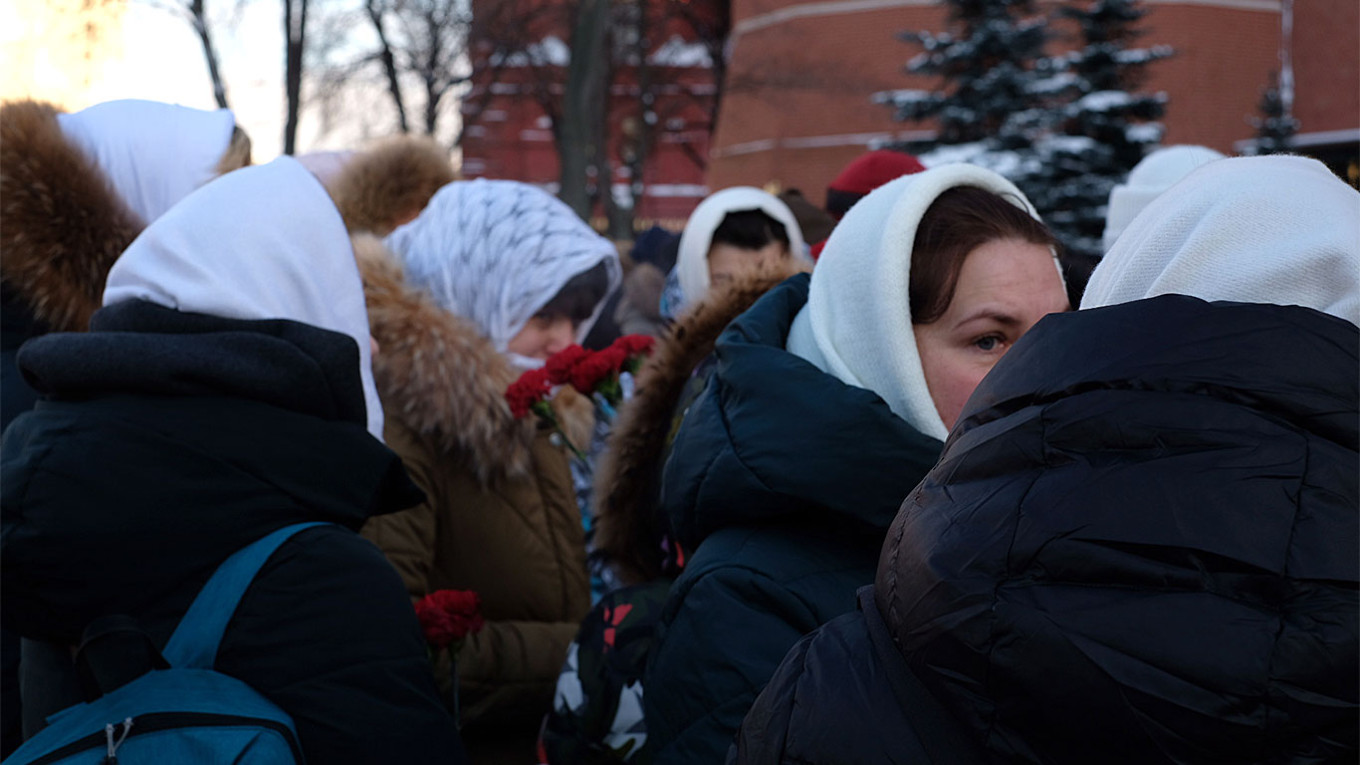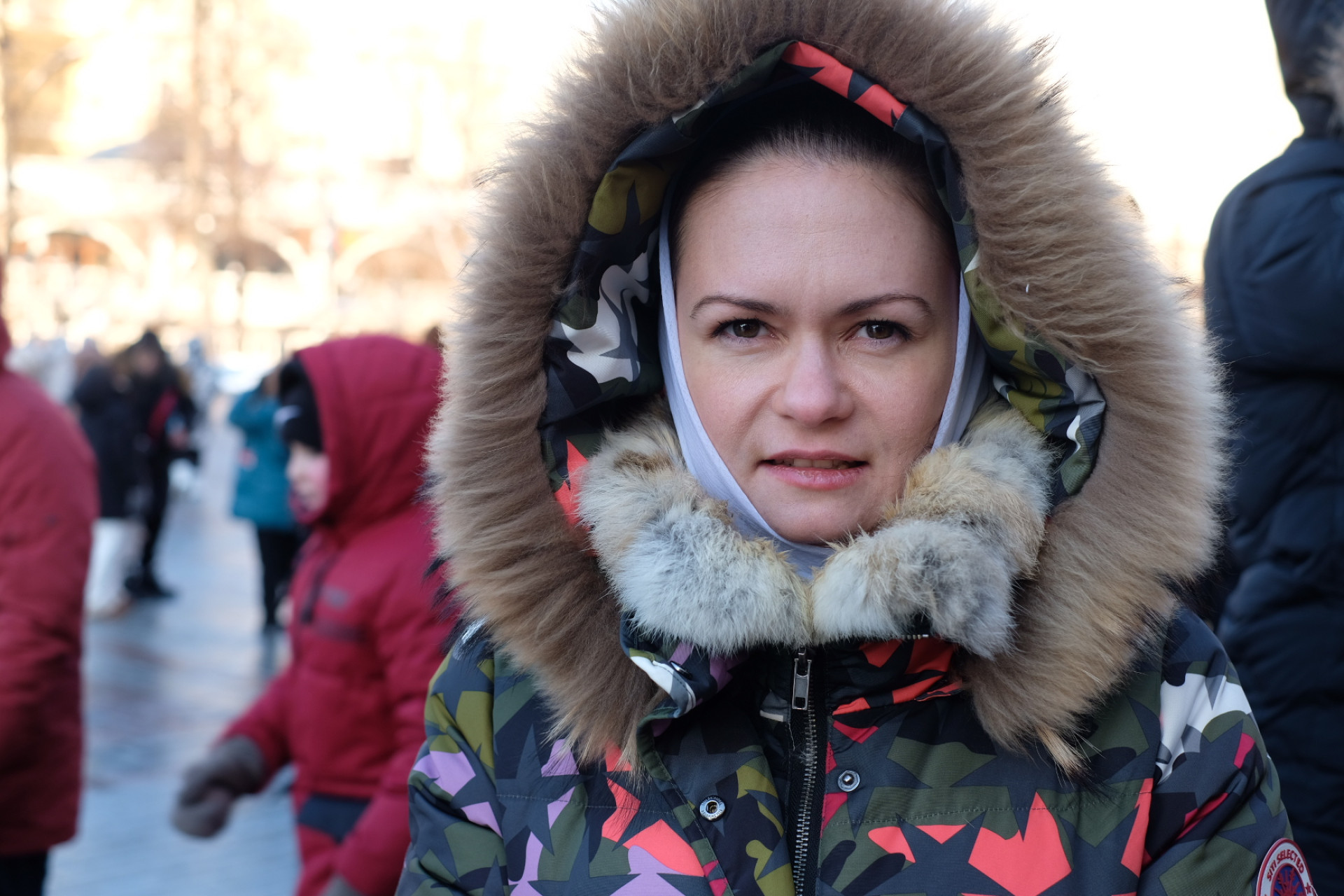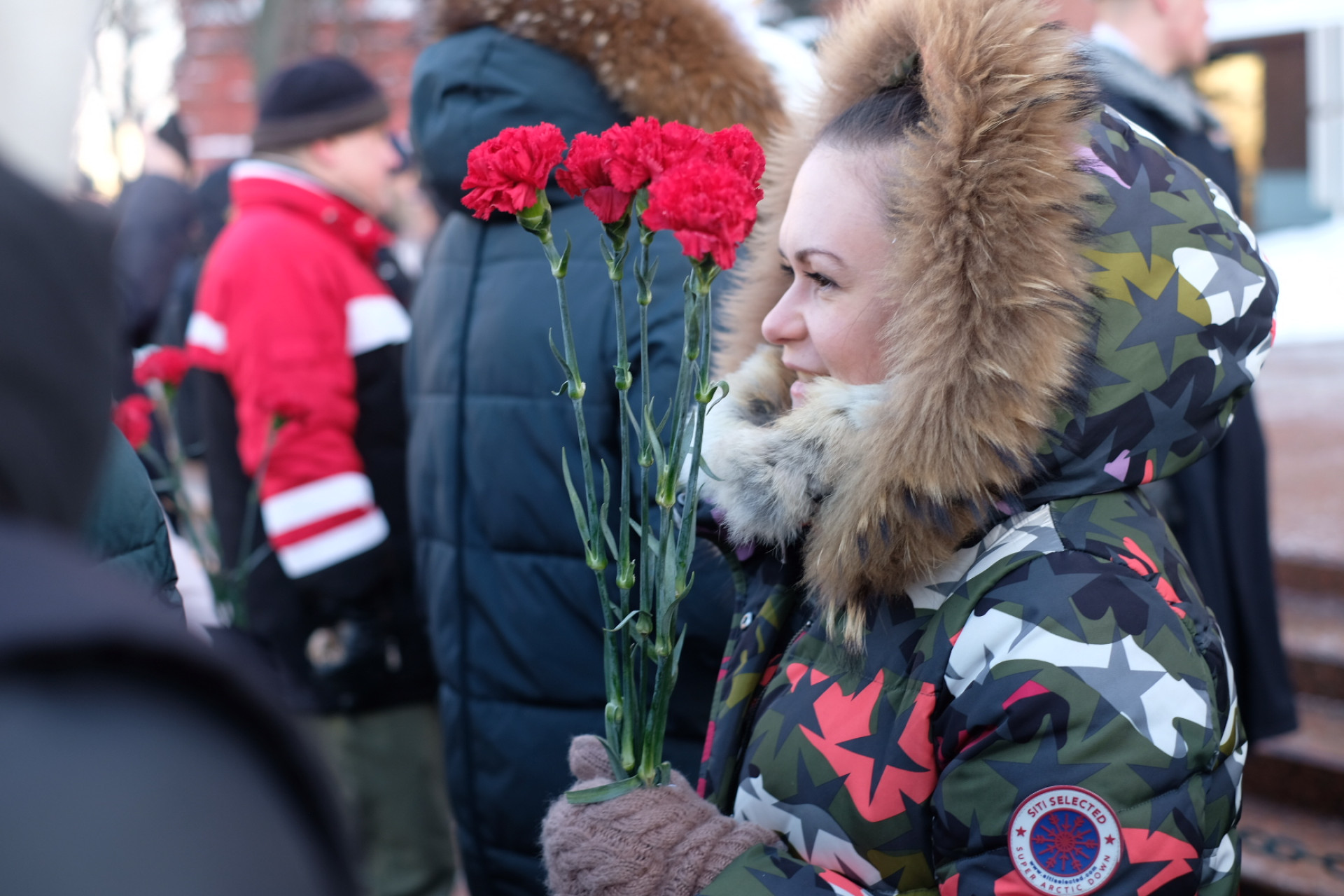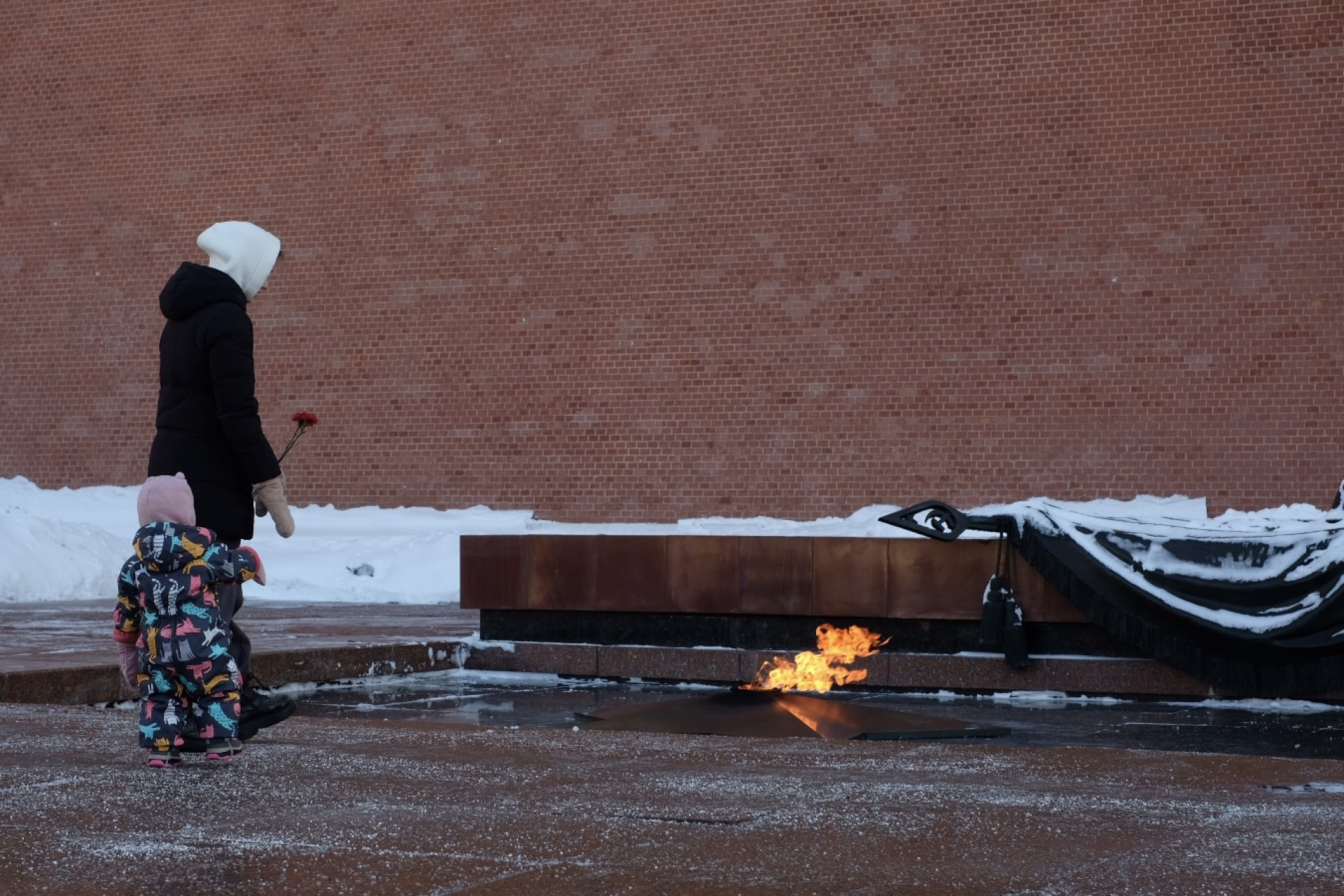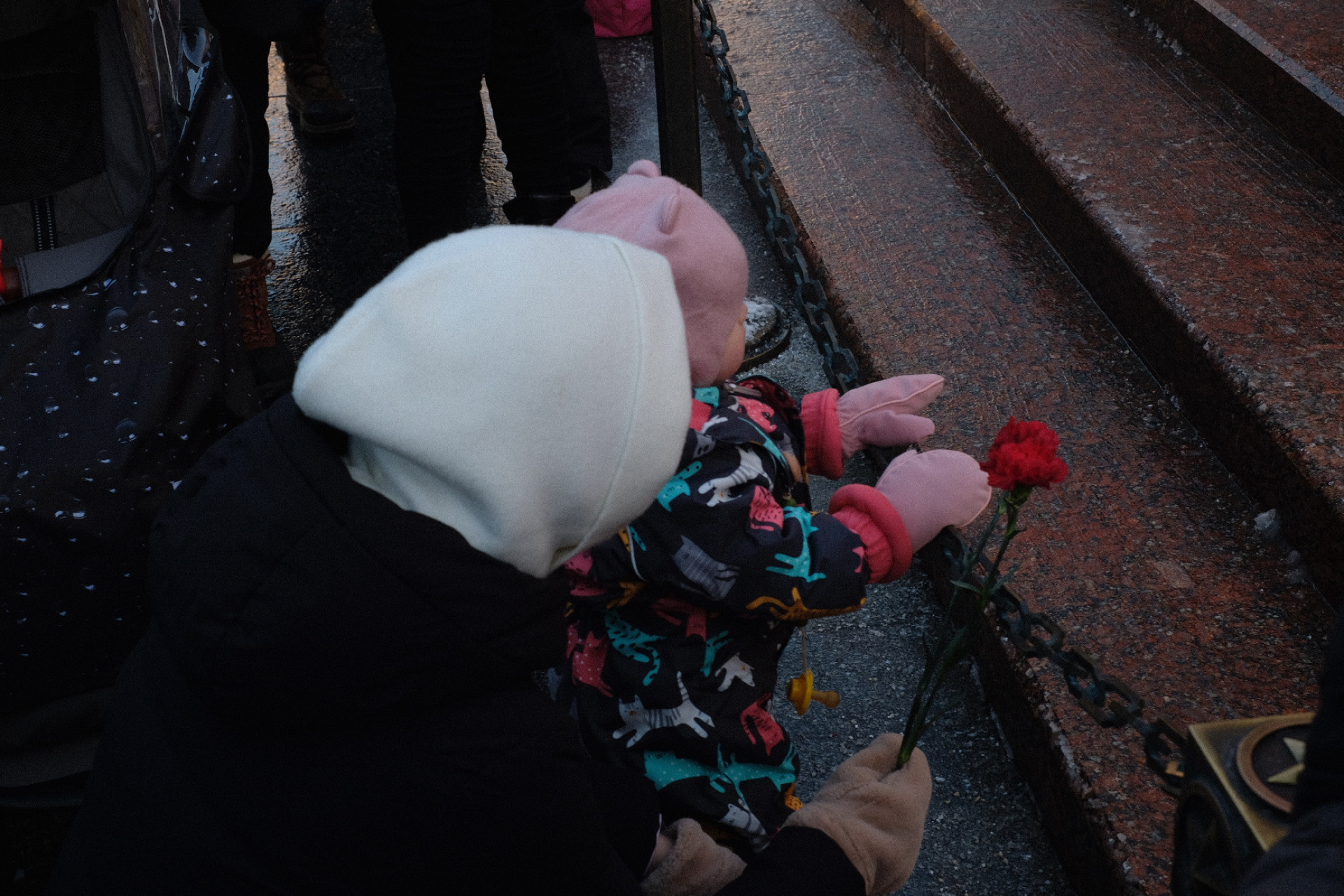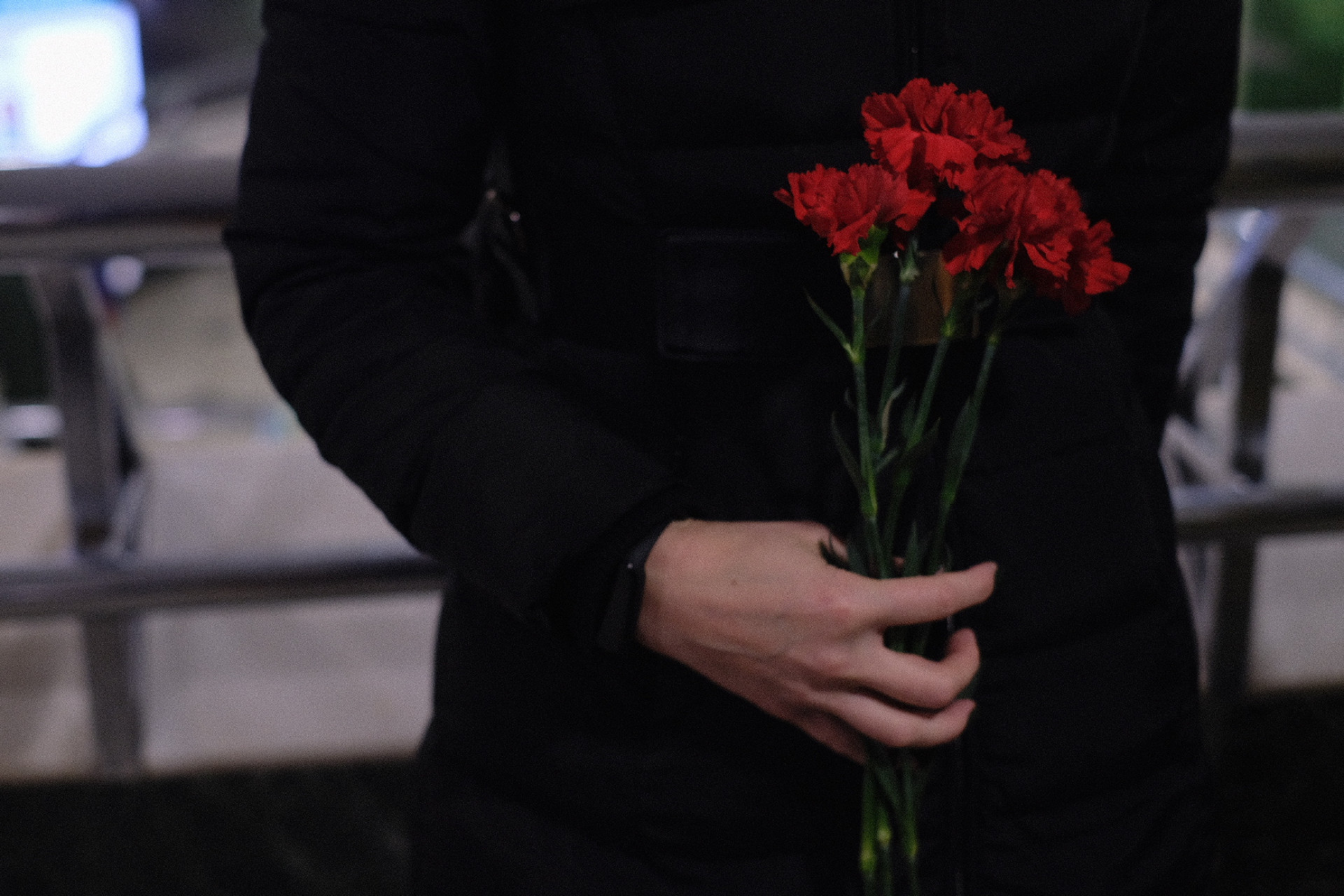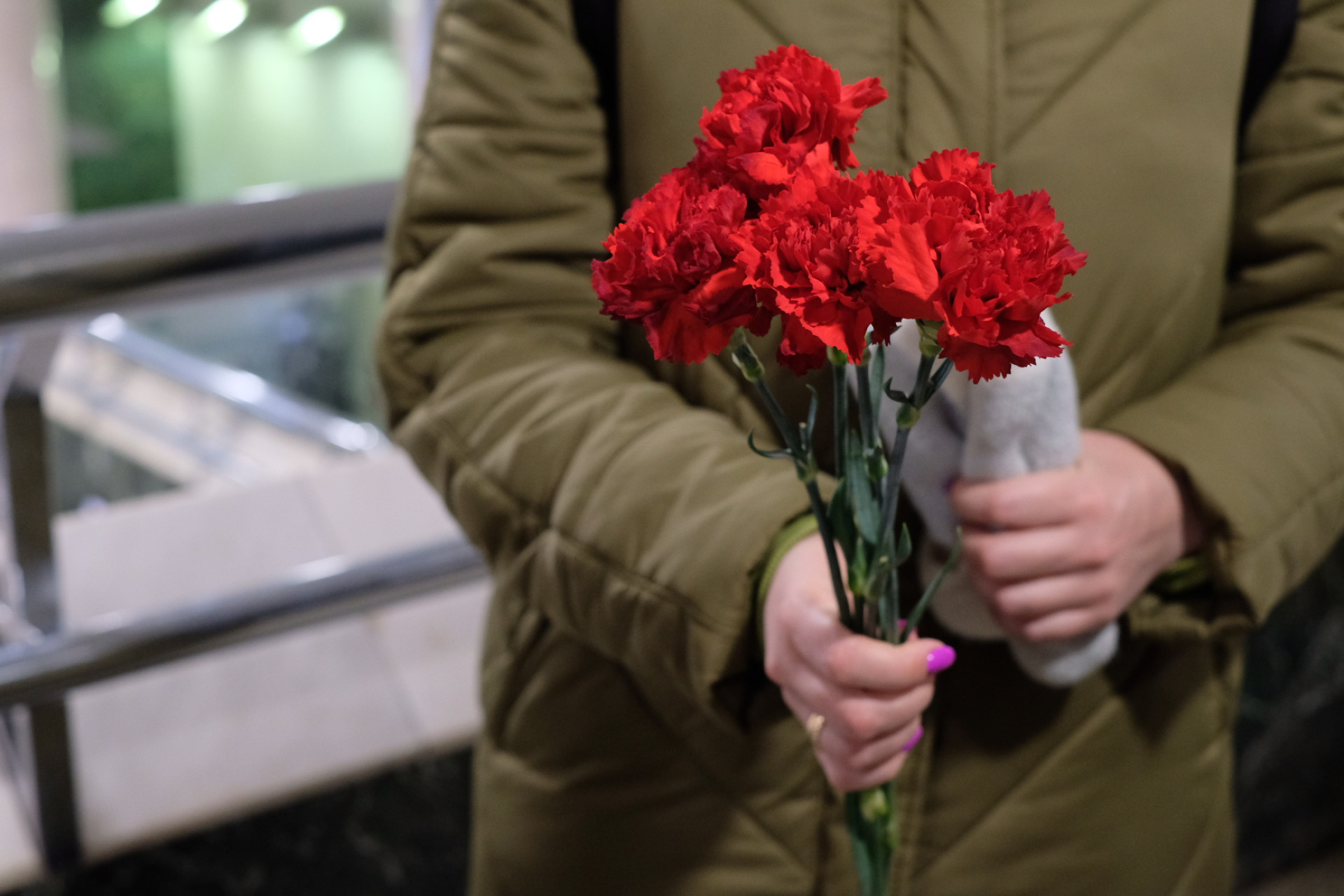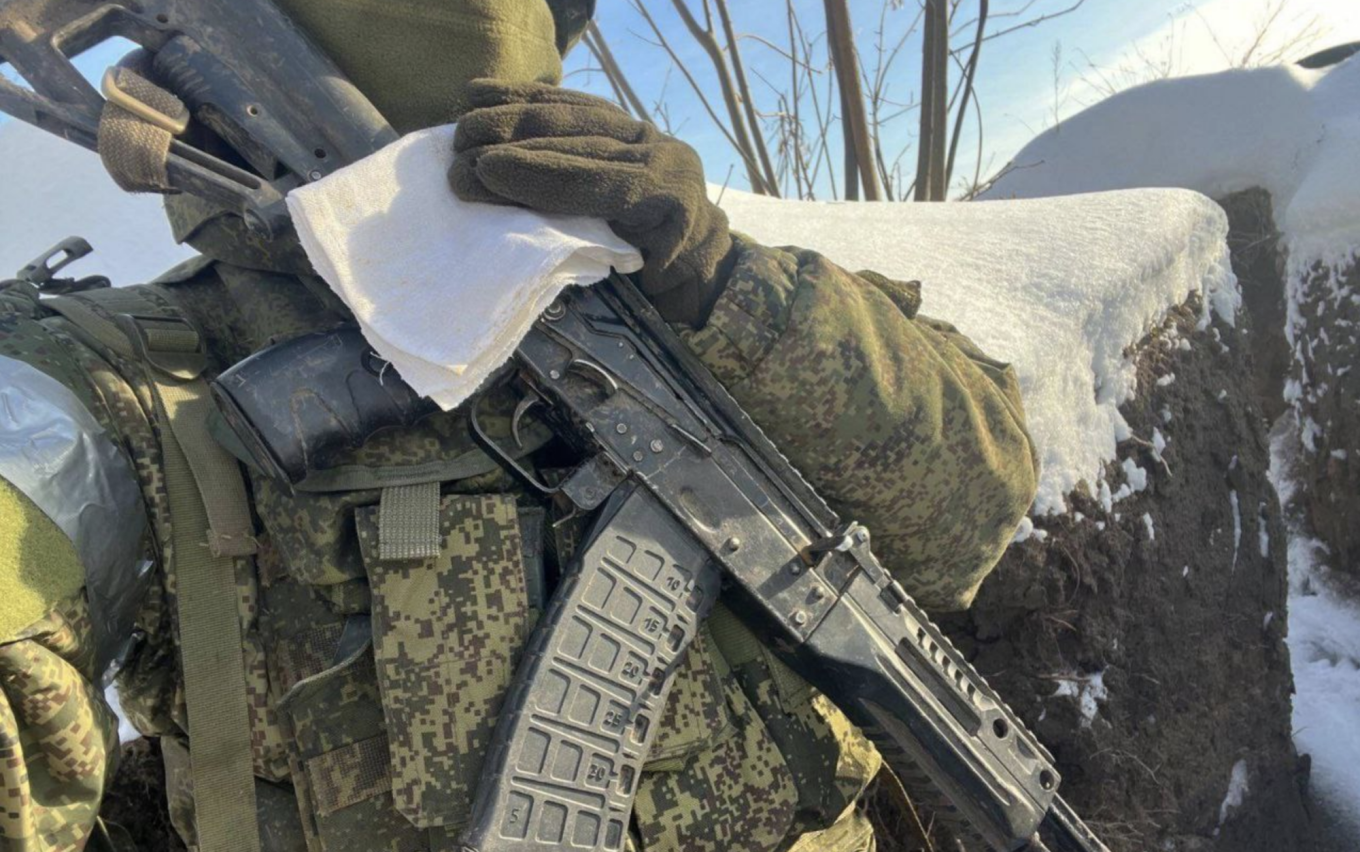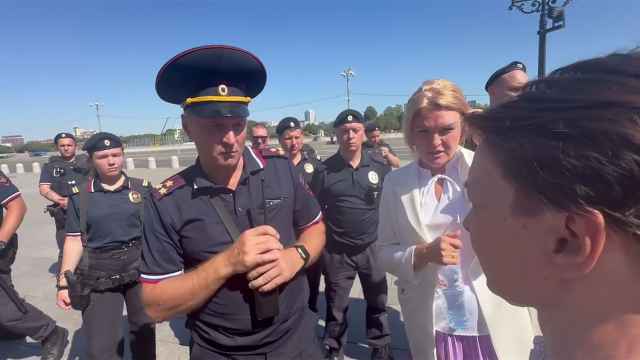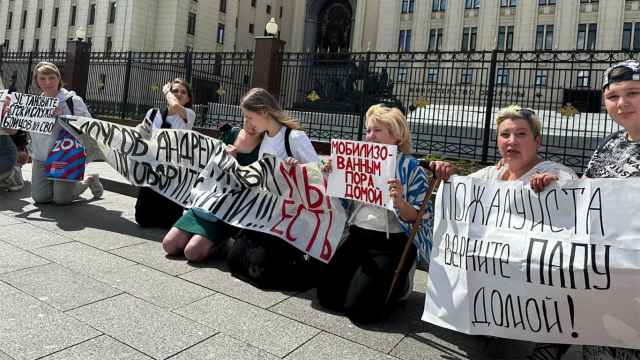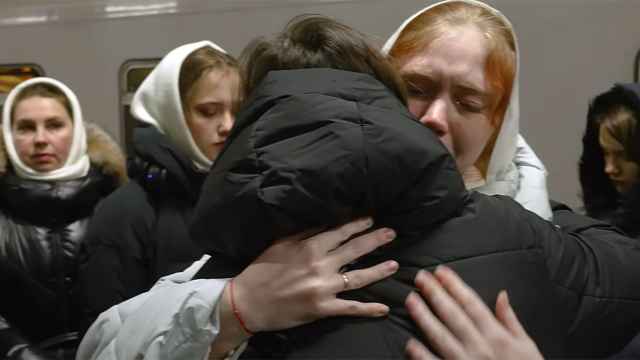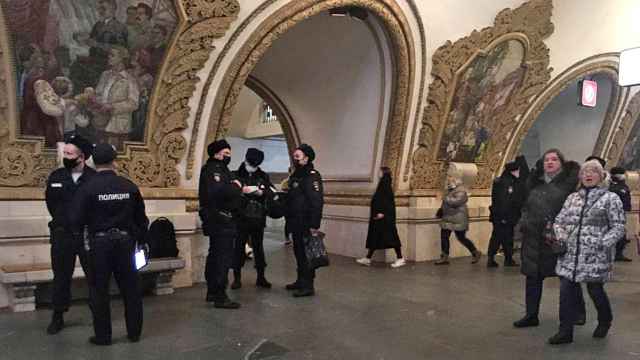MOSCOW — In the Russian winter cold, a group of women relatives of mobilized Russian soldiers lays flowers at the Tomb of the Unknown Soldier near the Kremlin walls.
Wearing white scarves, a symbol of their protest movement, the women said it was a rare opportunity to express their opposition to mobilization and publicly demand the return of their loved ones from the front.
“It’s obvious that we are straining the authorities with our existence,” Maria Andreyeva, the wife of a mobilized soldier and one of the most public figures in a growing anti-mobilization movement, told The Moscow Times at Saturday's protest.
“Our problems have been constantly ignored, but we won’t let our men be forgotten,” Andreyeva said, holding carnations traditionally placed on monuments dedicated to fallen soldiers in Russia.
Andreyeva is a member of Put’ Domoi (Way Home), one of the most visible groups of wives, mothers and daughters of some of the 300,000 men mobilized for the war in Ukraine.
Fifteen months after President Vladimir Putin declared the “partial” mobilization, these relatives are calling for full demobilization, sending requests to the authorities and saying that civilians must not be at the front.
“I want justice, I want [the authorities] to set a definitive return date for our civilian men who had no military training. That’s my goal,” a woman told a Moscow Times reporter at the gathering, requesting anonymity due to security concerns.
The movement started gaining momentum in November after several anti-mobilization protests and pickets in Moscow and across Russia.
Put’ Domoi — a Telegram channel with almost 40,000 subscribers — published a detailed manifesto and petition against what it called “slavery” and “indefinite mobilization.”
“We are not interested in destabilizing the political situation… We are determined to return our men at any cost,” Andreyeva said in a video appeal to Putin last month.
Put’ Domoi said it was inspired by Argentina’s Mothers of the Plaza de Mayo movement, which protested against repressions under the country's military dictatorships in the 1980s that saw thousands of people disappear. The mothers’ white headscarves became a symbol of their battle for their missing family members.
The Russian movement has united relatives from different ends of the political spectrum, with those who oppose the war and those who say their only goal is to bring their loved ones back pursuing a common goal.
And though the group says it has no intention to “impose political choices regarding power or attitudes toward the armed conflict in Ukraine," some female relatives told The Moscow Times they believed the authorities were trying to silence their voices.
In locations such as St. Petersburg, protest organizers have been denied permission to hold their demonstrations. Some relatives claim that they face intimidation including visits by police and warnings against questioning the Kremlin’s policies in Ukraine.
They have also faced accusations of being agents of foreign propaganda “to reduce the size of the Russian army” and of having ties to foreign intelligence.
Telegram added a “fake” label to the Put’ Domoi channel after a complaint by pro-Kremlin blogger Ilya Remeslo.
To deal with what is seen as one of the Kremlin's biggest domestic political challenges, the authorities are reportedly investing in loyal groups of wives and mothers.
One of these groups, Katyusha, presents itself as a “movement of daughters of officers,” does not question Russia’s actions in Ukraine and publishes posts loyal to the government.
But wives, daughters and mothers who spoke to The Moscow Times shared a different stance.
Valeria, whose father was sent to the front as part of the mobilization, said her letters and petitions about a return day to local officials were ignored. Some Russian lawyers refuse to work on mobilization cases, apparently believing that soldiers cannot be returned home with the help of a court appeal, she said.
“We were told that ... we were undermining the authority of the government, but we didn’t do anything illegal,” Valeria, from the city of Chelyabinsk some 1,800 kilometers east of the Russian capital, told The Moscow Times by phone interview.
“We just wanted to bring our dad back home.”
At Saturday's flower demonstration, a Moscow Times reporter saw police and other law enforcement present.
Police briefly detained Andreyeva at the gathering after she stood with a poster reading “Freedom for the mobilized. Bring back husbands, fathers and sons.”
One woman at the protest said her husband had even asked that she cover her face with a scarf to conceal her identity.
“He worries about us protesting here, and we worry about him there,” she said, also asking not to share her name.
Shortly after announcing the mobilization campaign last September, Putin met with a group of the mothers of Russian soldiers serving in Ukraine at an event to mark Mother’s Day in Russia. These mothers were carefully selected by officials and briefed ahead of the event, a Moscow Times source said.
This month, around a dozen women relatives of those mobilized, including Andreyeva, managed to meet with presidential hopeful Boris Nadezhdin, one of the few political figures who has openly discussed the issue of mobilization with the relatives.
“This topic is kind of taboo,” Maria, whose boyfriend was sent to the front, told The Moscow Times. “It’s like we're not even allowed to talk about it.”
But while slamming the authorities for inaction, women who spoke to The Moscow Times also said Russian society at large is “ignoring” the issue of mobilization.
The relative of one mobilized soldier said she believes “the rest of the country lives calmly as it did before [the war].”
Another woman said she was “offended” by the recent New Year celebrations across the country, saying they were “inappropriate” at a time while “our relatives are at the front.”
Since the mobilization, at least 4,915 conscripted men have been verified as killed in Ukraine since September 2022, according to an independent tally by Mediazona and BBC Russian.
Last month, St. Petersburg opposition politician Boris Vishnevsky published a letter — dated Dec. 5 and signed by the acting head of the Russian General Staff’s mobilization unit — that said the Russian military would not impose a one-year service limit for mobilized soldiers.
Quoting the letter, Vishnevsky, who sent a request on behalf of the soldiers’ relatives to set service limits for mobilized men, said the limits were established by Putin’s decree.
Russian political analyst Dmitry Oreshkin called the female relatives’ movement ”a serious symptom of growing problems” in the country after almost two years of war.
“It seems to me that the protest, which is not yet very threatening for the authorities, is being perceived with double attention, especially ahead of the March presidential election,” Oreshkin told The Moscow Times.
He added that the authorities appear reluctant to take a stance on the movement.
“Putin has a brilliant track record of governing the country and its population with winning rhetoric, but neither he nor his team has experience in a long and tedious war,” Oreshkin said. "Against this background, the consequences of the protest by the relatives could be unpredictable.”
Some women whose relatives were mobilized more than one year ago said that they have little reason to hope.
“To be honest, I still can’t believe that this could happen to my family,” Valeria told The Moscow Times.
She said she also started laying flowers on the soldiers’ monument wearing white scarves as a way to show her protest against mobilization in her home city of Chelyabinsk.
“Maybe at least these kinds of actions will finally draw the authorities’ attention to us,” she said.
A Message from The Moscow Times:
Dear readers,
We are facing unprecedented challenges. Russia's Prosecutor General's Office has designated The Moscow Times as an "undesirable" organization, criminalizing our work and putting our staff at risk of prosecution. This follows our earlier unjust labeling as a "foreign agent."
These actions are direct attempts to silence independent journalism in Russia. The authorities claim our work "discredits the decisions of the Russian leadership." We see things differently: we strive to provide accurate, unbiased reporting on Russia.
We, the journalists of The Moscow Times, refuse to be silenced. But to continue our work, we need your help.
Your support, no matter how small, makes a world of difference. If you can, please support us monthly starting from just $2. It's quick to set up, and every contribution makes a significant impact.
By supporting The Moscow Times, you're defending open, independent journalism in the face of repression. Thank you for standing with us.
Remind me later.



